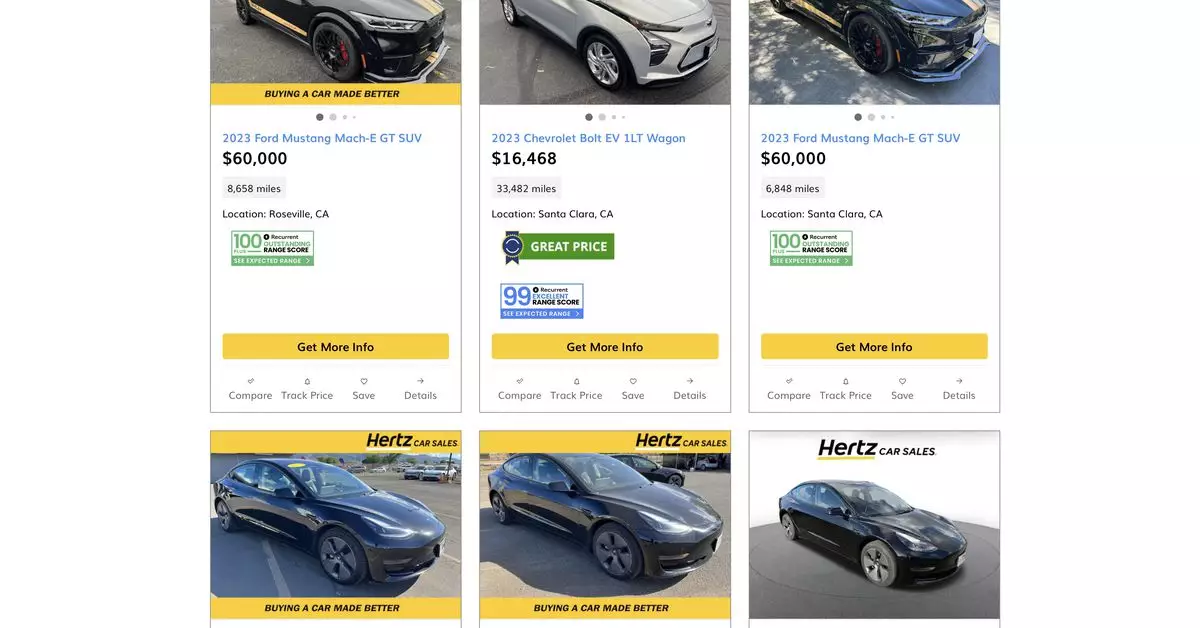In an intriguing turn of events, Hertz has begun presenting electric vehicle (EV) renters with the unique opportunity to purchase the vehicles they have rented instead of returning them. This strategic move appears to be a part of a broader initiative to capitalize on the growing popularity of electric cars and connect with customers who might be interested in ownership. As the market for EVs continues to evolve, Hertz’s tactic could establish new pathways for sales while appealing to eco-conscious consumers.
Recently, several renters of Hertz’s EV fleet took to online platforms like Reddit to share their experiences with these offers. For example, one renter of a 2023 Tesla Model 3 was quoted a price of $17,913—notably competitive when compared to similar listings on the Hertz Car Sales website. For context, the particular Model 3 had approximately 30,000 miles on it, distinguishing it from the majority of other used vehicles that typically have higher mileage. Another noteworthy deal included a Chevy Bolt offered at $18,442, while a Polestar 2 renter reported a purchase price of $28,500. Each vehicle purchase comes with a limited warranty, including a 12-month or 12,000-mile powertrain guarantee and a buy-back option to return the car within seven days—a structure that adds a layer of security for hesitant buyers.
When questioned about whether these offers were exclusive to EVs or part of a broader Hertz strategy, communications director Jamie Line clarified the initiative’s intent. She emphasized the dual goal of enhancing awareness about Hertz’s used car sales while simultaneously catering to the rental customers who might be contemplating ownership of their rented vehicles. This approach allows Hertz not only to move inventory but also creates a sense of community by engaging with its clientele in a novel manner.
However, not all is smooth sailing in Hertz’s journey. Last year, they faced challenges scaling up their electric rental fleet due to insufficiencies in customer demand and difficulties with repairs on specific models, particularly the Tesla Model 3. With these roadblocks leading to a strategic decision to discontinue procurement of certain EV models, Hertz also announced the intent to sell off nearly 30,000 Teslas from their rental inventory. Thus, the company finds itself at a crossroads: determining how best to meet consumer preferences while navigating the inherent challenges of the emerging EV market.
Hertz’s initiative to offer rental EVs for purchase represents a potentially transformative moment in the automotive rental sector, particularly within the growing domain of electric vehicles. By making attractive offers and creatively linking their rental services with car sales, Hertz aims to draw in customers while addressing the hurdles they face in the EV market. Whether this bold strategy will resonate with consumers remains to be seen, but it undoubtedly highlights the company’s innovative spirit in adapting to an evolving industry landscape.

